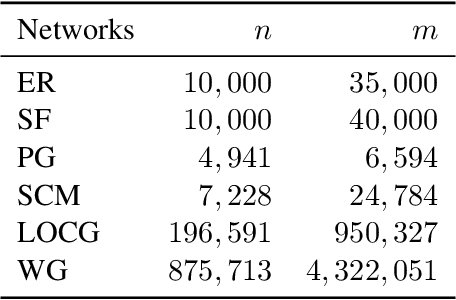PrEF: Percolation-based Evolutionary Framework for the diffusion-source-localization problem in large networks
Paper and Code
May 19, 2022



We assume that the state of a number of nodes in a network could be investigated if necessary, and study what configuration of those nodes could facilitate a better solution for the diffusion-source-localization (DSL) problem. In particular, we formulate a candidate set which contains the diffusion source for sure, and propose the method, Percolation-based Evolutionary Framework (PrEF), to minimize such set. Hence one could further conduct more intensive investigation on only a few nodes to target the source. To achieve that, we first demonstrate that there are some similarities between the DSL problem and the network immunization problem. We find that the minimization of the candidate set is equivalent to the minimization of the order parameter if we view the observer set as the removal node set. Hence, PrEF is developed based on the network percolation and evolutionary algorithm. The effectiveness of the proposed method is validated on both model and empirical networks in regard to varied circumstances. Our results show that the developed approach could achieve a much smaller candidate set compared to the state of the art in almost all cases. Meanwhile, our approach is also more stable, i.e., it has similar performance irrespective of varied infection probabilities, diffusion models, and outbreak ranges. More importantly, our approach might provide a new framework to tackle the DSL problem in extreme large networks.
 Add to Chrome
Add to Chrome Add to Firefox
Add to Firefox Add to Edge
Add to Edge